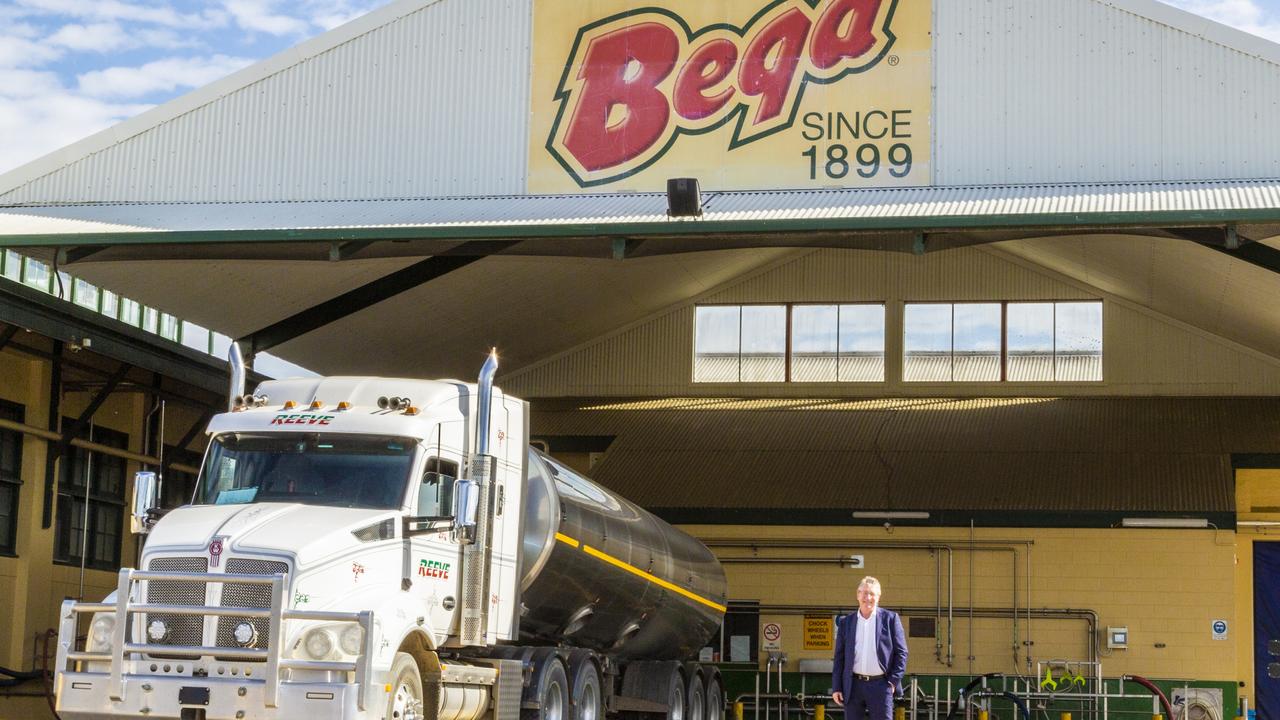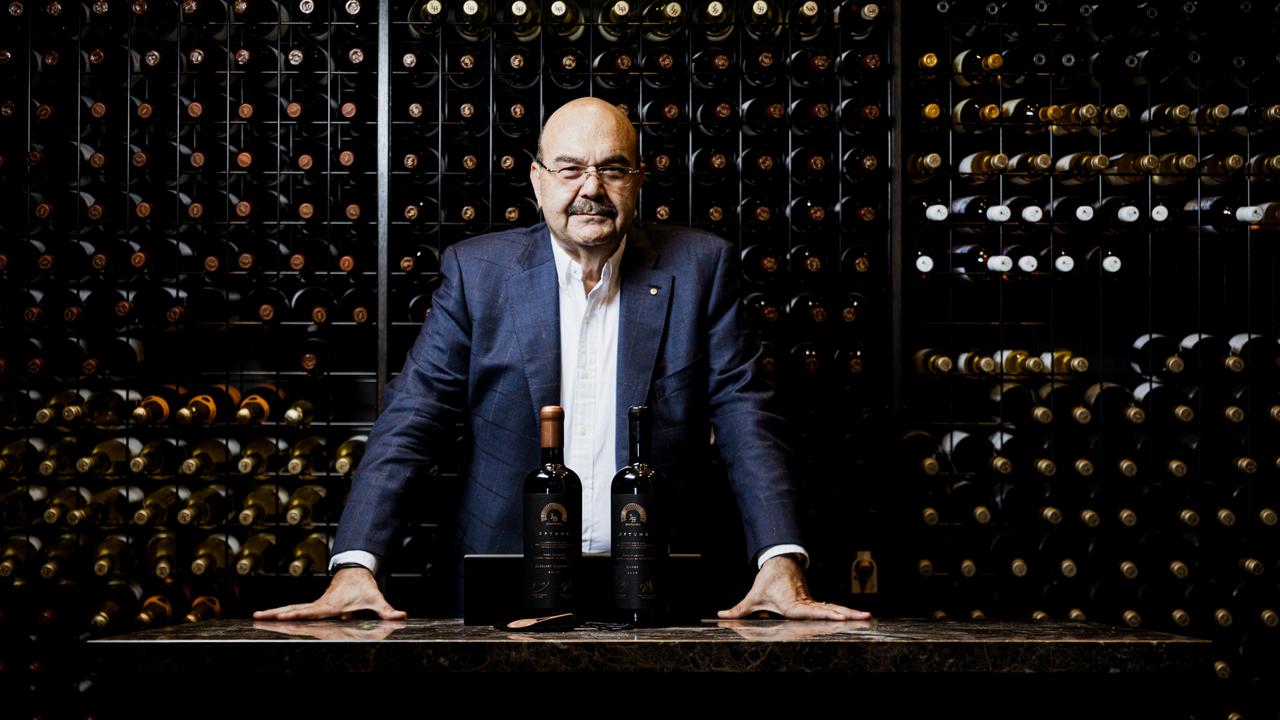Gig economy ‘can be a win-win’: DoorDash CEO
Ahead of a looming fight between the new Albanese government and food delivery companies, Tony Xu says there’s a way for everyone to get what they want.
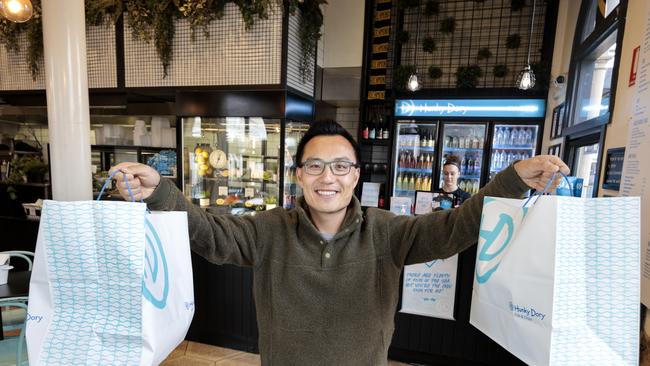
Business
Don't miss out on the headlines from Business. Followed categories will be added to My News.
Started as a small start-up by four Stanford friends, DoorDash has grown into the leading food delivery service in the US and its global chief executive, Tony Xu, has plans to make his app the last one standing, in what’s a cutthroat – and controversial – market.
Speaking on his first visit to Australia since the company launched here in 2019, Xu says that while companies in the gig economy are still figuring out the right balance between worker conditions, fast delivery and appropriate compensation for restaurants, his company is ready to work with unions and the Albanese government to try and find a regulatory win-win.
“It’s a new way of working,” Xu says. “Traditional labour standards and models were designed around a model where we work 9-to-5 and for one employer likely for the entirety of our life or career. And where we are now, people value flexibility, and they value their time as much if not more than their money.
“As a result, they care about when they can work, where they can work, and that goes against the traditional labour model.
“So the question becomes how do we offer this flexibility, and some of the things that traditional standards have tried to uphold, whether that’s earnings standards, or safety protection, and the ways workers are ought to be protected. We’ll work with the government.”
Questions have been raised over the broader viability of the gig economy, and DoorDash has grappled with class action lawsuits and criticisms that it misclassifies its drivers as independent contractors. The industry has also been plagued by rider deaths, and numerous safety issues. The new Labor government has flagged industrial reforms that would allow drivers portable sick and annual leave, and greater job security.
Xu says DoorDash was the first platform to offer occupational accident instance for its riders, and is working with local unions including the Transport Workers Union in Australia to help co-author rider standards.
Transport Workers Union secretary Michael Kaine said the industry needs to find a way to fix its high rates of underpayment, workplace industries and deaths.
“We’re pleased companies like DoorDash have recognised this model is unsustainable and have publicly committed to constructive dialogue and advocacy with workers and the TWU to achieve appropriate standards, workplace protections and flexibility,” he says. ”It must be congratulated for being the first gig company in Australia to take this step.”
“With workers and gig companies demanding reform, the federal government must move decisively to lift standards in the industry. Establishing an independent, standard-setting body capable of extending rights to all workers regardless of their label would deliver on the pre-election commitments gig workers were proud to endorse.
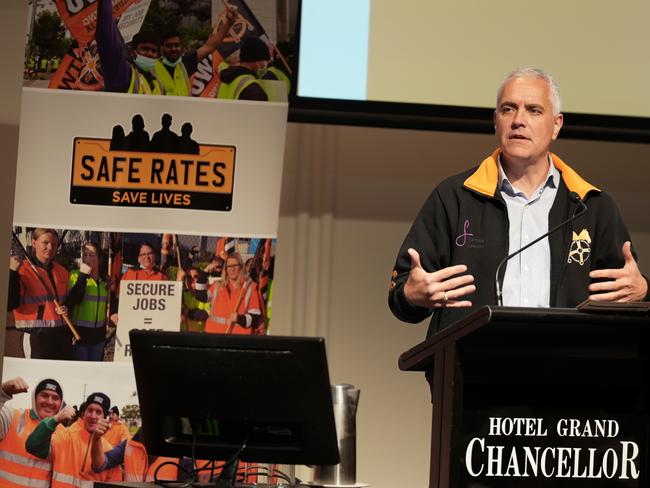
Xu started the company nine years ago with Stanley Tang, Andy Fang and Evan Moore, growing it into an operation that is now worth $US23bn ($32.8bn).
“The goal was never about delivery, the goal was about helping business owners like my Mum,” he says. “I’m the son of immigrants, who came to the US from China, and my Mum worked three jobs as a way to put food on the table, and one of them was at a Chinese restaurant where I moonlighted as a dishwasher at times,” he says.
“That’s probably where I first get the sense of what businesses need, and that was the motivating factor for starting the company. After conversations with three or four hundred businesses, whether they sold food or retail items, delivery has been this consistent challenge. We want to help keep commerce local and that’s the driving factor whether it’s economic output or job creation, or frankly even the culture of neighbourhoods.”
The company is known primarily for its consumer-facing app that rivals the likes of Uber Eats and Deliveroo, offering customers lunch and dinner delivery in 30 minutes. Xu says that its fastest-growing segment is actually one no-one knows about.
DoorDash offers a business-to-business white-label service to the likes of IGA supermarkets, Chemist Warehouse and other retailers, allowing them to offer delivery from their own websites. The items are delivered by DoorDash riders but the process bypasses the DoorDash app.
Xu says that offering, dubbed DoorDash Drive, is for the 40 per cent of local businesses that don’t have an online ordering solution.
It‘s a key point of difference for the company which is used to being the dominant player – in the US it has about 55 per cent market share for food delivery, more than twice its closest rival. In Australia it’s still a relative minnow.
“DoorDash was never the first player in any market that we entered, and we’ve almost always been the last player,” he says. “Hopefully we’ll remain the last player in the last market ... in some ways that’s the ultimate goal.
“There‘s been so much activity in our space and in adjacent categories but the market is still so small in terms of what it should really become. If you add up the scale of where we’re at in terms of restaurants, and deliveries from groceries, flower shops and liquor stores, it’s almost not noticeable in terms of all the transactions that are happening physically.”
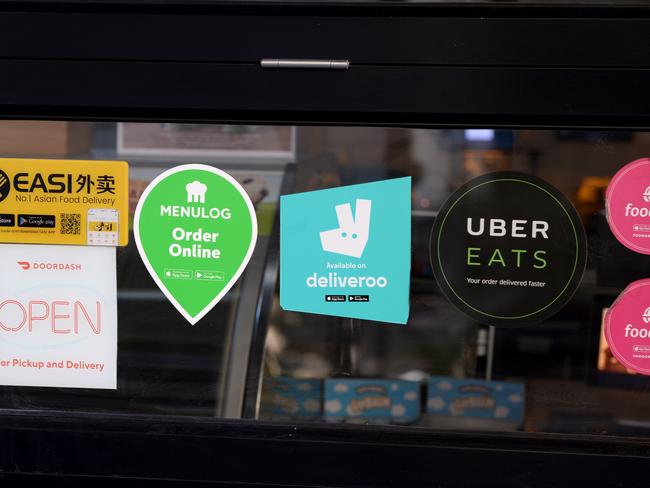
The company’s shares are down 60 per cent in six months, amid a broader tech rout. Xu says during hardship and tumult is when executives typically do their best work. “Yeah, it’s a tough market. Certainly whenever you have the backdrop of a decade-plus of bull market, followed by somewhat unprecedented stimulus dollars into the economy, worldwide, and then you throw in there inflation and supply chain challenges, and a war, iut adds for a recipe of a very tough economic climate,” he says. “But companies aren’t just their stock prices.”
Xu joined the board of Facebook parent company Meta in January 2022, and says the role so far has been invigorating, especially amid Facebook‘s step into the metaverse.
“It‘s been great learning from Mark and the team at Meta, they are extraordinary at what they do, and I think they have shown incredible resilience through their own journey. We’re talking about a company that’s seen a lot of change over its history. And now as it’s making a big move into building the next computing platforms, and the metaverse, that’s a huge change from both a product perspective but also from an internal organisation perspective, in terms of needing to build new skills.
“They‘re really well known for their family of apps, whether it’s Facebook, WhatsApp, or Instagram, and now they’re building a new line of products that consumers and businesses will love.”
Originally published as Gig economy ‘can be a win-win’: DoorDash CEO


